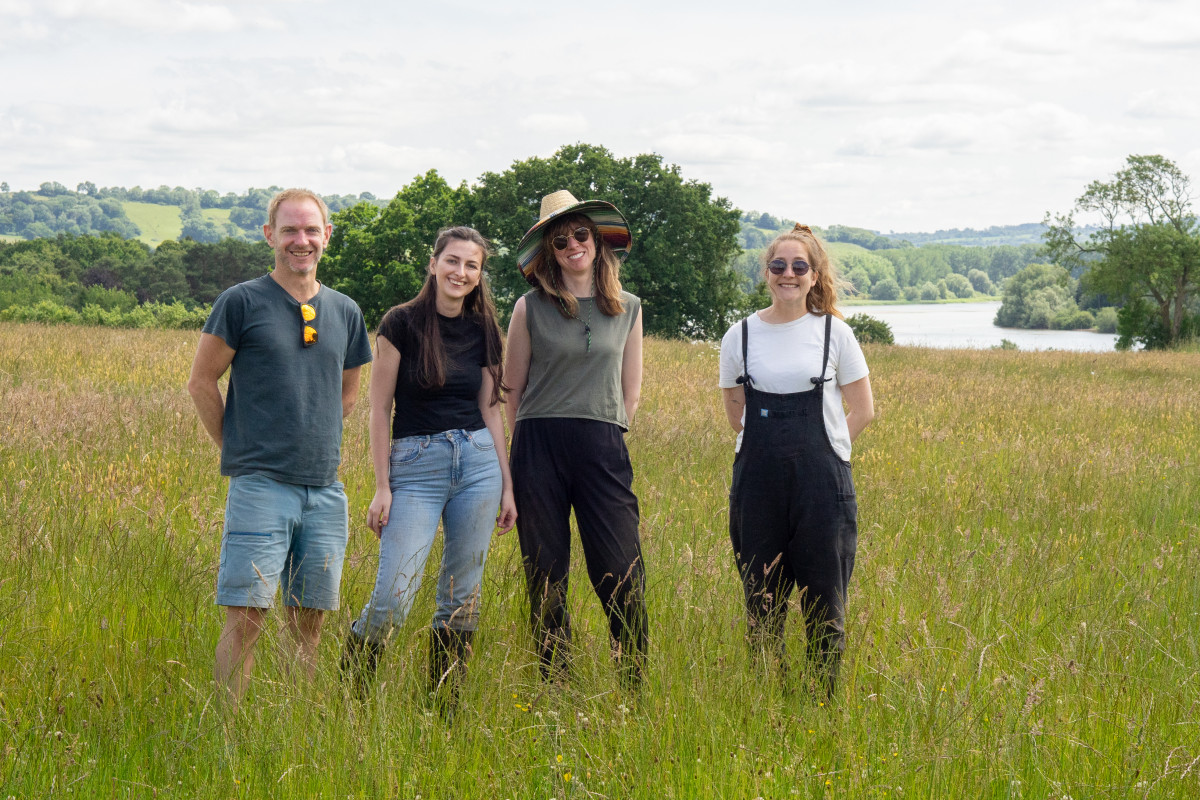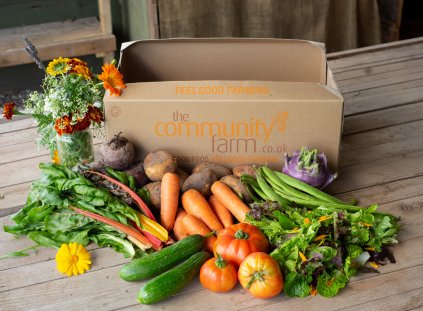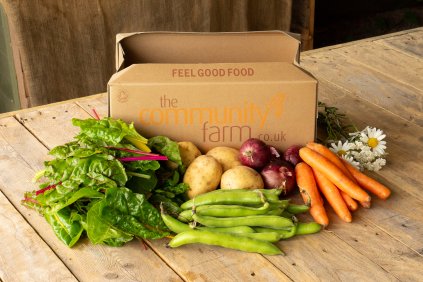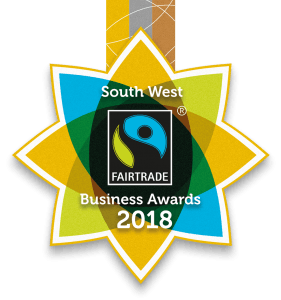It’s Organic September! I have no idea where these behavioural change months came from, how many there are (DryJanuary, Veganuary, Stoptober…!) or whether they work. I celebrate my birthday every year - not because I expect it to change the seeds of time, but because it’s a chance to celebrate together with those I love, and so I’m a happy Organic September celebrant!
The story of “organic” is fascinating, not least because it had several female pioneers and influencers at its roots. It was an antidote to the industrialised post-war methods used to rapidly increase production , but ultimately it wasn’t a new set of farming methods. “Organic” farming referred to methods that were “free from pesticides and fertilisers” (frighteningly required to be in use by 1942 ) and was a term used to promote the results of the Haughley Experiment (a soil science experiment that proved the new industrialised methods damaged the soil); this knowledge is now widespread, but industrial farming practices and policy still do not reflect it.
A significant event in organic farming history was the creation of a set of standards by the Soil Association in 1967. As the label “organic” became a symbol of higher food standards and trusted sources, it was adopted into our food safety laws and regulation . Food could not be sold as organic unless it carried an organic certification. This could be viewed as a positive turn; organic farming was being held in high regard by regulators, as proof that it provided benefits above industrial farming. But with certification came record keeping, auditing and a new cost to farmers to prove that they are meeting these standards. From the beginning, this cost was put on those trying to benefit the environment and our health, rather than those damaging it. Inverting the situation brings an interesting observation: where is the audit and transparency on industrial processes which are damaging to our health and environment? And why are the associated costs not forced upon those producers?
As time went by, industrial farming paired with the Green Revolution and globalised supply chains to achieve two simple goals: to make more food, and to make it cheaper than ever before. Against this initiative, organic became increasingly expensive for all parties. Large retailers (such as those now dominating our food supply chain) discovered that there was an added cost in the very specific ways that organic food needs to be packaged and handled to prevent contamination and fraud. Therefore, to keep their margins, supermarket retailers and marketers sold organic as a premium product seemingly reserved for the middle class. The term organic then became synonymous with jokes about luxurious, snooty lifestyles. This was only helped by the fact that organic produce was often sold devoid of the soil it had been designed to protect, and even pre-prepared in glossy packaging for those with little time on their hands, tops and tails manicured to perfection.
Thanks to its image as a luxury product, the recession from 2008 caused several years of reduction in organic sales . Supermarkets jumped to the general public’s rescue, slashing prices and persuading us we needed cheap, processed food in abundance to feed ourselves in such difficult times. Although the overall organic market is now boasting growth in the UK, produce sales are losing their share whilst processed foods (such as ready meals) and alcoholic beverages are experiencing growth. Does this suggest that the organic food market is still reserved for the middle classes? It certainly doesn’t suggest that organic is “food as it should be”: basic ingredients, available to all, helping us live healthily while helping our ecosystem.
If organic food is reserved for the few, there is a risk that farming will be, too. Certified organic farmland in the UK decreased by over 9% in 2019. Furthermore, farming remains the least diversified of all sectors : though slowly changing, it remains still male-dominated to a significant extent and, second only to environmental sustainability, is predominantly white British. From the financial side of things, there are huge barriers to access land suitable for small-scale, ecological growing. Even with access to smallholdings, the cost of certification for organic is often something new entrants cannot afford, despite them often going above and beyond organic farming methods. For example, a survey by the Organic Growers Alliance in 2018 couldn’t find any members below the age of 25.
I started this article promising I was a celebrant of organic - not just in September, but all through the year. And believe me, I am! It is “food as it should be”. It is food that should be available to all. It should be accessible. It should be building soil and healthy ecosystems. It should be in front of children at school. It shouldn’t be considered a premium. It shouldn’t only be packaged and glossed. We need a certification, but ideally we shouldn’t have to foot the bill. That cost should be covered by those whose industrial processes are damaging the earth. But, until then, seek out the certification, support it and go beyond it. Support local, small scale farmers and producers where you can; and take that extra bit of time to build trust in them, yourselves. Listen to their stories of how they produce and their passion for the land. Because if we support them, the organic land in the UK will increase, and that’s what matters.
Kim Brooks
Managing Director, The Community Farm
Join our Wildlife celebration day on Saturday 19th July! Find out more
About Us
- Home
- About Us
- News from The Farm
- Just how accessible is "Organic"?

Search
Just how accessible is "Organic"?
- Details

Our Most Popular Boxes
Do we deliver to you?
We deliver to Bristol, Bath, Chew Valley, Weston-Super-Mare, Frome and plenty of places in-between!
The Community Farm
Denny Lane
Chew Magna
Bristol BS40 8SZ
Our Outlets
Saturdays 9am-2pm
The same wonderful, organic produce that goes into our veg boxes is available for sale at The Farm's Veg Shed.
The Community Farm is a not-for-profit organisation, registered with the Financial Conduct Authority as a Community Benefit Society.
Our registration number on the Mutuals Public Register is 31018 R. Our companies Number at Companies House is IP031018
© 2025 The Community Farm












